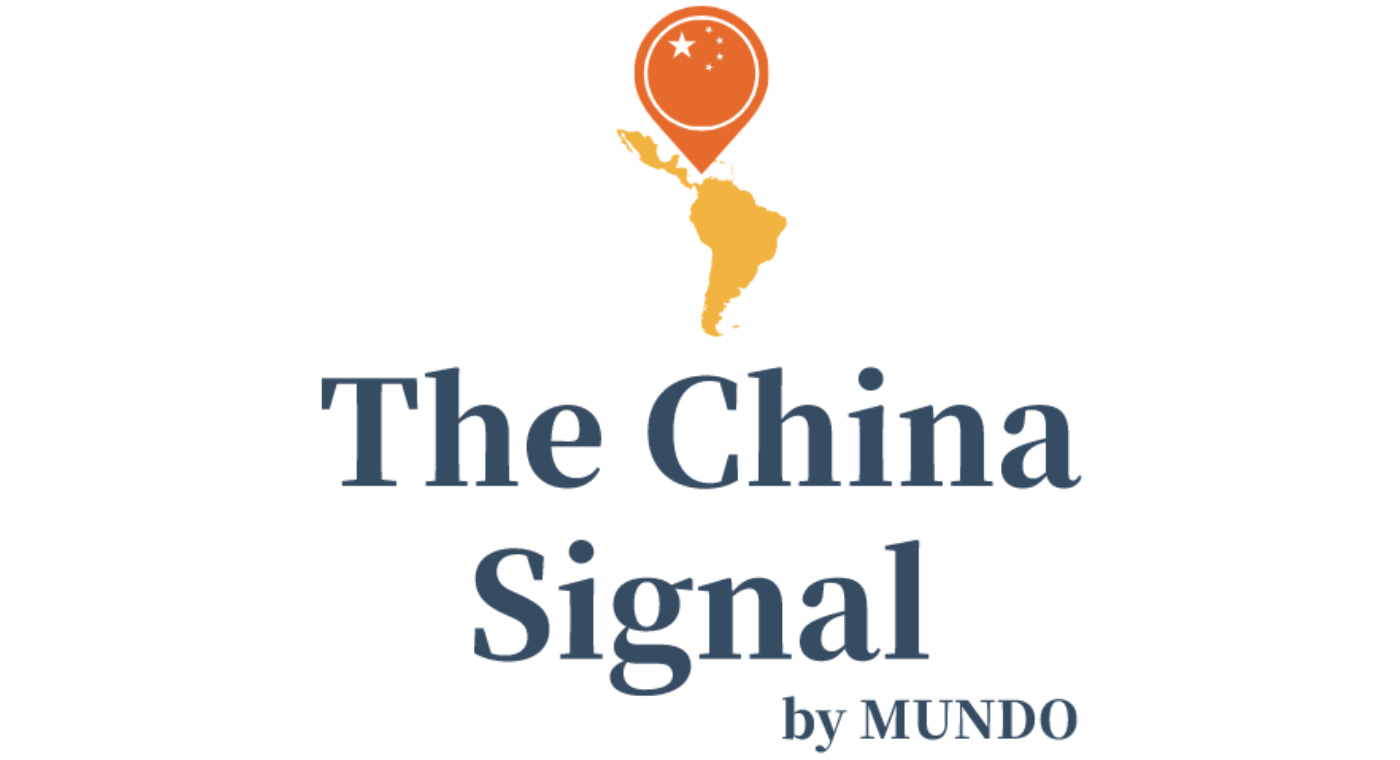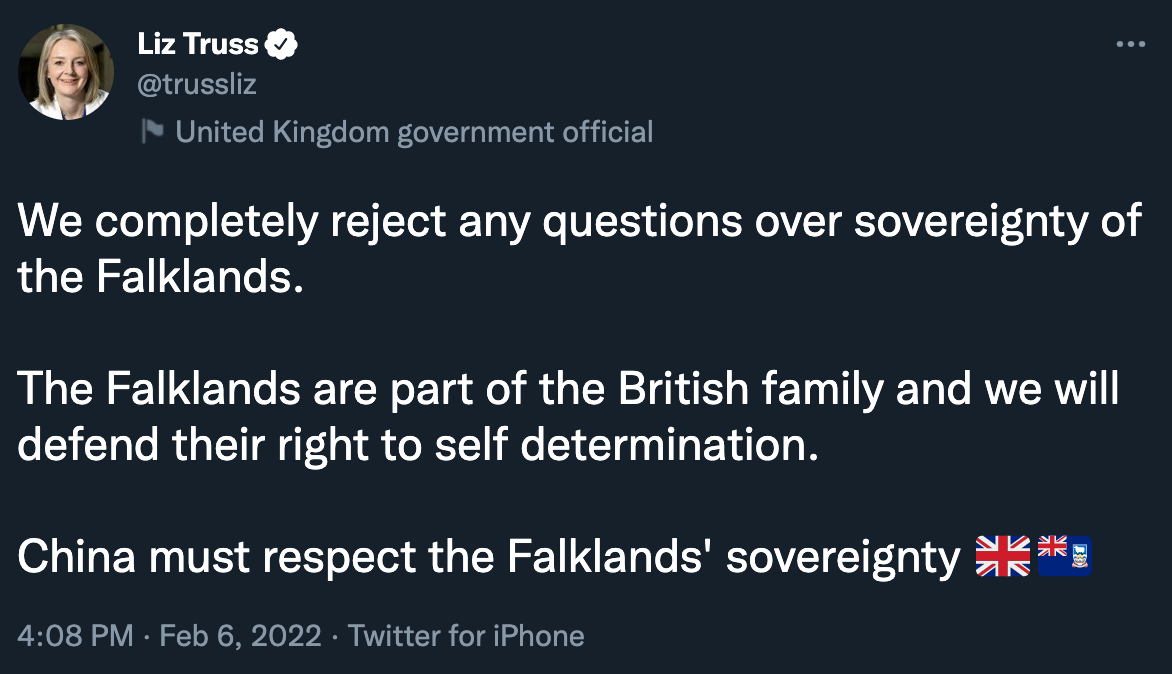G’day, and welcome to The China Signal. This week Argentina joins the BRI, while Beijing reaffirms its support to Argentina’s claims over the Falkland Islands; China National Nuclear Corp signs an $8 billion nuclear power plant agreement in Argentina; Ecuador and China sign MOU to begin free trade negotiations; Zijin Mining Group announces a $380 million investment to construct a lithium carbonate plant in Argentina; plus more. Read on.
It was a pleasure to discuss Argentina and Ecuador’s bilateral meetings in China with Catherine Osborn last week for her latest Latin America Brief for Foreign Policy. You can read her newsletter here.
Also, do tune in to Rasheed Griffith’s latest China in the Americas podcast episode, where Rasheed, Ethan Knecht of the China-LAC Dispatch and I discuss some of the major (and quirky) news stories between China and Latin America in 2021.
And finally, The China Signal is expanding, and I’m looking for an intern! Full details are here. Do you know anyone who would be interested in this opportunity? Please share amongst your network.
Diplomacy
Argentina 🇦🇷
China, Argentina pledge closer ties on currency, 'Belt and Road' | Reuters - February 6, 2022
The two also signed a memorandum of understanding related to China's signature Belt and Road initiative…
"This strategic decision will allow the national government to sign different agreements that guarantee financing for investments and works for more than $23.7 billion," Argentina's government said. The Chinese side did not give such a figure.
According to Fermín Koop of Diálogo Chino, over half of this figure amounts to projects already approved. Koop’s article also has a terrific timeline of the bilateral relationship, which is well worth exploring.
China is willing to share development opportunities with Argentina and help it expand exports and upgrade its industries, China's foreign ministry quoted Xi as saying.
He was quoted as saying the two countries should deepen cooperation in trade, agriculture, energy and mining, infrastructure, investment and financing, anti-epidemic efforts, the digital economy, green development and other areas.
*Note: Global Times is a Chinese state backed media outlet.
In addition to the MoU on BRI cooperation, the two countries also signed cooperation documents for over ten areas, including green development, the digital economy, aerospace, the BeiDou Navigation Satellite System, technological innovation and agriculture.
I’m interested in the growing emphasis Beijing is placing on the adoption of its BeiDou satellite navigation system, which competes with the United States’ GPS and Russia’s Glonass systems. BeiDou was also mentioned in the “Joint Action Plan” released at last December’s China-CELAC Forum, which I covered in TCS December 11.
China’s Ministry of Foreign Affairs readout can be found here.
Notably, the two leaders issued a joint statement where Beijing reaffirmed its support for Argentina’s claims to the Falkland Islands, via Xinhua
Argentina reaffirms its adherence to the one-China principle, whereas China reaffirms its support for Argentina's demand for the full exercise of sovereignty over the Malvinas Islands and its support for an early resumption of negotiations in accordance with relevant United Nations resolutions for a peaceful settlement of the dispute.
This statement was swiftly rebuked by the United Kingdom’s Foreign Secretary Liz Truss.
I reached out to Ralph Espach, Senior Research Scientist at CNA for his thoughts on the strategic interests at play in the China-Argentina relationship. He notes that:
It is not surprising that Argentina continues to build a relationship and seek commercial, technical, and financial help from China, while maintaining good (decent?) relations with the US and West. Argentina desperately needs long term debt restructuring, and though in the past it has been very generous, the IMF is trying to be tough on a consistently failing client. Certain aspects of Argentina – its resources, its market, its proximity to and claims in Antarctica – ensure that it will continue to be a subject of China-US competition for the foreseeable future. This could be of great benefit to Argentinians, if their government is strategically savvy and competent.
Espach wrote an excellent piece on the relevance of Argentina to China’s strategic interests in an article I featured last March.
Energy
Argentina 🇦🇷
China inks $8 bln nuclear power plant deal in Argentina | Reuters - February 2, 2022
State-owned China National Nuclear Corp (CNNC) has signed a contract in Argentina to build the $8 billion Atucha III nuclear power plant using China's Hualong One technology, reviving a deal that had been stalled for years.
Argentina's government said in a statement that the construction project "involves an investment of over $8 billion" for engineering, construction, acquisition, commissioning and delivery of a HPR-1000 type reactor.
"Atucha III will have a gross power of 1,200 MW and an initial useful life of 60 years, and will allow the expansion of national nuclear capacities," it said, adding that construction was set to start at the end of this year.
Details of financing of the nuclear power plant deal were not available. The reactor will be installed in the town of Lima in the province of Buenos Aires.
China has started operating its own Hualong One reactor in the southeast Chinese province of Fujian. The Argentina project will be the second overseas location using Hualong One technology after Pakistan.
Trade
Ecuador 🇪🇨
Ecuador sees trade deal with China at end of year, debt talks to begin | Reuters - February 5, 2022
Ecuador expects to pull together a trade deal with China at the end of this year and will begin formal debt re-negotiations with the Asian country, Ecuadorean President Guillermo Lasso said on Saturday, after a Beijing visit with his counterpart Xi Jinping.
At the meeting the two countries signed a memorandum of understanding meant to pave the way for a trade deal at the end of the year, which would benefit Ecuadorean exports of shrimp, bananas, cacao, other fruit and minerals.
Xi was quoted as expressing hope that Ecuador would continue to provide a fair business environment for Chinese companies to invest and operate in Ecuador, while saying China would continue to help Ecuador fight COVID-19.
Critical Minerals
Global mined lithium production hit a record high in 2021 of 100,000 tonnes (excluding the US), a 21% increase over 2020 (82,500 tonnes), according to preliminary data released by the US Geological Survey (USGS).
The two page report can be found here.
USGS said that production increased in response to strong demand from the lithium-ion battery market and increased prices of lithium.
Global consumption of lithium in 2021 was estimated to be 93,000 tonnes, a 33% increase from 70,000 tonnes in 2020.
Four mineral operations in Australia, two brine operations each in Argentina and Chile, and two brine and one mineral operation in China accounted for the majority of world lithium production.
Additionally, smaller operations in Brazil, China, Portugal, the United States, and Zimbabwe also contributed to world lithium production.
Argentina 🇦🇷
China's Zijin Mining to invest $380 mln in Argentina lithium plant | Reuters - February 4, 2022
Chinese mining firm Zijin Mining Group Co Ltd will invest $380 million to construct a lithium carbonate plant in Argentina via local subsidiary Liex, the country’s Ministry of Production said on Friday.
The plant will be located in the Tres Quebradas project, in the northern province of Catamarca, and will aim to produce 20,000 tons of lithium carbonate per year with the idea of doubling its production in the medium term, the government said.
Last year, Zijin purchased Canada’s Neo Lithium Corp, which operates the Tres Quebradas (3Q) project.
Public Diplomacy
Guyana 🇬🇾
The project, which will start this year, will cost in excess of US$11 million. It is being funded by the Chinese government as Guyana and China celebrate 50 years of diplomatic ties.
Ambassador Guo reiterated that the park will be renamed the Guyana-China Friendship Joe Vieira Park. She said that the park will be built with an aim of providing a public place for families and would not only have recreational activities but cultural events as well.
She also said that the park’s concept reflects the government’s people-centred development approach.
“This year marks the 50th anniversary of China—Guyana friendship, our relationship, and we cherish our friendship and cooperation very much.”
Once completed, the venue is expected to have a China-Guyana Friendship Guyana Monument, an amphitheatre, a picnic lawn, a stand canopy over a pond, twin pavilions, and grounds for football, tennis and basketball.
Insurance
Broader Latin America 🏔🏝
Going Out, Guaranteed: Chinese Insurers in Latin America - The Dialogue - January 27, 2022
China’s growing overseas footprint has meant more risk exposure for its projects, companies, and workers. With this in mind, China’s top planners have recently underscored the importance of enhanced insurance support for the country’s overseas operations in recent five-year plans and in policies toward Latin America.
China’s insurers have been strongly encouraged to mitigate trade risks through export credit insurance or tariff guarantee insurance, and to support the broader needs of the many Chinese companies developing the Belt and Road Initiative. With overseas interests in mind, China’s 14th Five-Year Plan (2021–2025) and other policy documents promote a continued focus not only on “bringing in,” or allowing more foreign capital in China’s insurance industry, but also on “going out,” or overseas investment.
China Export and Credit Insurance Corporation (Sinosure) was among the first of China’s insurance companies to guarantee major Chinese engineering or construction projects and exports in Latin America.
In addition to Sinosure, other Chinese insurers have made recent inroads in the region, addressing the growing needs of Chinese companies through cooperative arrangements with Latin American insurers or acquisitions of international insurance companies. In other cases, Chinese companies have forged partnerships in reinsurance, joining Sinosure in supporting BRI-related infrastructure development across Latin America.
The extent to which China’s major insurers will take advantage of growing demand in Latin America for life and non-life products is unclear, but there are nevertheless some signs of growing interest among Chinese providers. Also evident in recent years is a growing focus on providing risk analysis and rescue services for Chinese companies operating in Latin America and other regions.
The nature of Chinese overseas insurance activity and BRI expansion in the region will of course be shaped by wide-ranging factors. Much will depend, for instance, on the extent of Chinese infrastructure companies’ appetite for high-quality insurance products. The industries in which Chinese companies focus in the coming years will also shape their insurance needs. Looking ahead, possible changes in China’s approach to project selection might generate greater demand for insurance guarantees from Chinese or foreign firms. At the same time, political and economic uncertainties in the region, climate change, and other factors could limit interest and capacity among the major insurance companies already operating in Latin America.






